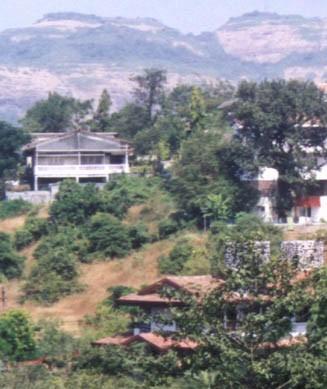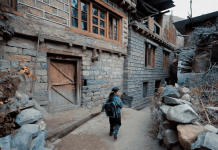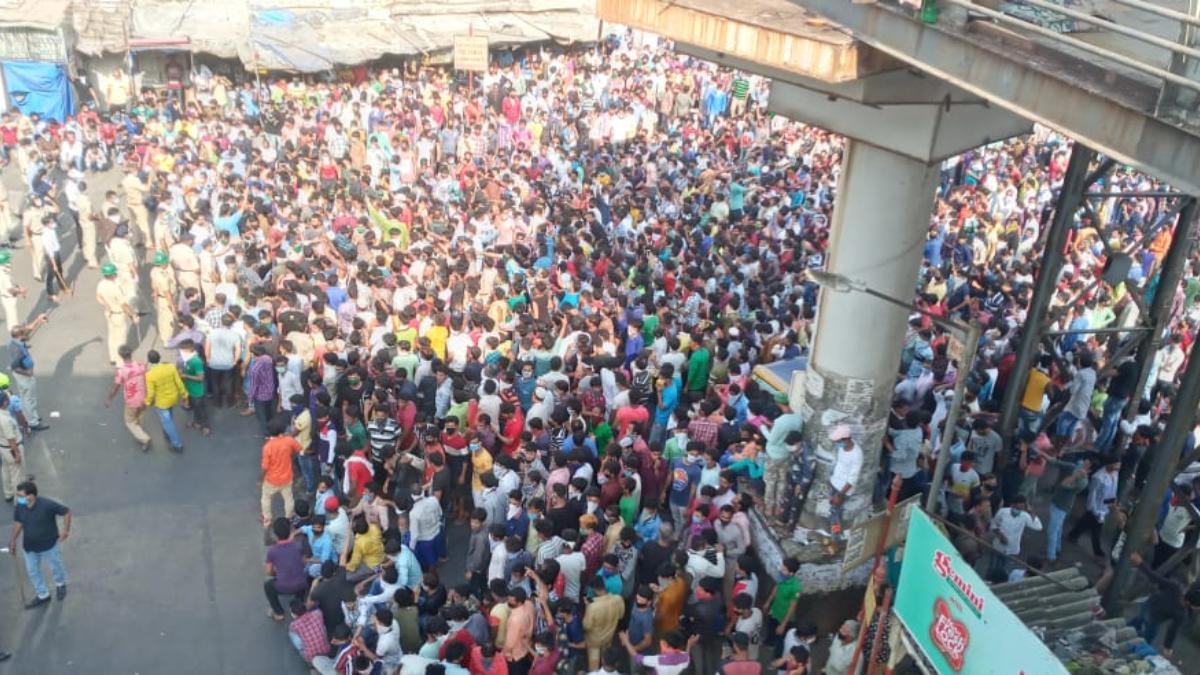It was during a winter of early nineteen sixties. Rumours of ‘child-lifters’ spread far and wide like wildfire. Those child-lifters were supposed to be involved in an inhuman trade of illegally-and-deceptively-taking-away the innocent children from remote areas. Thereafter they would drub the abducted children on the sly. Those culprits would torture them to such an extent that the abducted little-ones literally turn into invalids. And then the child-lifters would engage ‘those-poor-souls’ in the drudgery of begging for the sake of getting some easy-money using them. A mere thought of such wicked people would make any mother appear in the blues. By all means even an audacious child too would get panic when listens such things.
Montu’s father, a postmaster, was recently transferred to the post-office of that village, Ichhaboni. Though it was like any other typical rural setting, by and large it apparently appeared so. But in addition to some institutes, hospital, police station and post-office that locality had the very rare privilege. That was ‘electricity’, albeit strictly from 6.30 p.m. to 10.30 p.m. daily. By the way in those days that entire block wasn’t electrified yet. While in that envious locality there were two large generators. One in the midst of a cashew-nut orchard beside the ‘sole motor-able road’ and the other lying at the far-eastern-end flanked by a shaal forest.
A few people were employed to run and maintain the generator houses. One of them, Pyarelal, an expert mechanic, was from Eastern-Uttar-Pradesh. His knowledge of Bengali was pretty limited and his Hindi accent was beyond dispute enjoyable for the locals out there. In those days there wasn’t any branch of a bank in the village. In addition to his regular-duty as a ‘power-house-mechanic’, Pyarelal would also accompany the group once in every month to fetch the employees’ payment, ‘an-amount-heavy-indeed’ from the district town. He had a kukri (a Nepali knife), a proud possession. He was also adept in some kind of martial-art. And above all everyone liked his entertaining superfluous loquacious nature.
It was probably during the second week of February. The ill-fated day was bitterly cold. Like most villages, at the onset of evening, there was hardly a soul in the small market area near the bus-stand. Montu’s father was reading the newspaper. And his mother was preparing the little cotton–wicks to light a small brass pedestal lamp as a part of the evening adoration. Montu was busy repairing his catapult on the verandah of their quarter. The last bus hadn’t come yet. It would reach there ever and anon by eight thirty p.m. But some of the shops were already closed. Two Chaukidaars were taking tea inside the sweetmeat shop of one Mr. Sujay Modak and awaiting the last bus. They sat very close to the big Chula, a typical coal–oven. Madan Pal, the owner of the cycle repairing shop, was keeping all his paraphernalia inside and preparing to close his shop. Most of the female-folk were busy preparing dinner in almost all the houses of the locals and the quarters on either sides of the road.
While putting a little oil in the small pedestal lamp, mother enquired, “Have you completed your homework Montu?” Almost instantly he replied, “Yes Maa”. She started muttering the persistently regular complaints against her husband, for not paying enough attention towards ‘her’ son’s studies. Neither Montu left his busy repairing-work nor his father stopped reading for it was all the same to both of them wheather she continues grumbling or keeps quiet. She placed the lighted lamp on a small alter of which there was the Tulasi plant. She put the incense sticks there and blew the ‘sacred-conch-shell’. The sound of which used to spread a mystic effect.
Sweet–shop owner, Sujay was stirring the hot sugar syrup in a very big iron cauldron. He looked at the burning coal. It was reddish yellow. He was going to make rasagullaa. While smashing the cheese-dough again and again he started chatting with the two chaukidaars. Meanwhile two shabbily dressed men came in front of the shop riding bicycles. They came in quest of milk for they had a patient in the hospital. They were from a distant village called Tejpur. It was located towards east about ten kilometers away beyond the shaal forest and the small river Prushnaa. They too sat on a bench nearby. And while sipping hot-tea one of them joined the conversation. They were talking about how a small boy of around seven or eight years was abducted, when he was playing with a hoop on the dusty–village-path of a distant hamlet, named Khartori. No sooner had they seen Tiwariji, the head-constable of the local police-station, approaching in front of the shop than they stopped talking abruptly.
Tiwariji was the In-charge of the local police out-post. Though by profession a policeman, but he was a well-disposed person in his element.
Sujay, the shop owner, greeted him with a grin, “Namaskaar Tiwariji, Please tell me sar, what can I do for you?”
“Going to make fresh rasagullaa, it seems,” he enquired.
Sujay nodded and said, “Yes sar, I‘ve received a big order for tomorrow, the Paatra family ordered sar. Those who own the old cloth shop and the medical store”
“Yes, Yes, I see, I see, they’ve reasons to celebrate. Old Paatra-baabu has become a proud grandpa. In fact they’ve invited a number of people including me. He had real foresight and true business acumen.”
“Ji sar, He didn’t depend on only agriculture. That is why his sons are doing well” Sujay grinned. And he continued smashing the cheese dough to ensure that the rasagullaa should become more soft and fluffy.
Tiwariji had an unusual habit of taking a stroll after dinner. At least it was quite out of the way for the people over there. That day he had his dinner a bit earlier. May be he was expecting some ‘informers’. It was a regular part of their duty. From time to time those ‘anonymous folk’ used to share necessary ins and outs, which help a lot to nab the dacoits, thieves and other absconding criminals. Informers would come in the guise of any-one, such as a poor-villager.
The big metallic gang hanging on a lower branch of a neem tree in front of the hostel was banged to announce the dinnertime. Almost instantly boys came out with their plates and glasses in hand thumping and talking loudly on their way towards the dining hall. The master paaraa was resounded. The monotonous silence all around was broken for the time being. Montu and his father came out to walk a little after their dinner. On the way, just after crossing the post office they met Tiwariji. They greeted each other. It was Montu who first noticed the glowing headlights of the bus. The bus was around one and a half kilometers away. On seeing the flash of the bright lights he said with joy, “The bus is coming, the bus is coming”. The two elders glanced at it. It was moving slowly. The condition of the road was too bad. It was out of tune with its surroundings. Innumerable potholes of diverse form & size were formed in the last monsoon. The workers of PWD continued the ‘patch-up-work’. And the politicians would hardly bother till another election knocks up.
“Let’s go to the bus stop,” Tiwariji suggested. They walked up to the bus stop. Sujay was busy preparing rasagullaa. Montu noticed that. While the two elders were absorbed discussing some political issue, Montu again noted that the bus wasn’t moving. He was told that it might have stopped for a while near the village Digipara. At last the bus reached Ichhaboni. All the people in the bus were in a hurry. Some of them got down and had been moving helter-skelter to get their luggage. Someone hustled while taking out his big gunny-bag. All at once there was a lot of shouting and both the seniors did hear that. Before they could ask about the reason of the uproar, at the very instant Tiwariji noticed Montu wasn’t there. He shouted immediately. Montu’s father too shouted and started asking about Montu to all and sundry. People of the nearby houses and the shops also joined in that hue and cry. People started moving helter-skelter. Tiwariji yelled someone to call the constables present in the police-out-post, “the culprit must be caught and beaten black and blue. Some more people came out of the quarters of Master–paaraa. Few locals of the nearby houses of Ichhaboni came running. Few of them were carrying glistening lathis. People shouted and proclaimed that at all events the wicket would be caught and punished.
Taking the chance of that commotion, in no time, a miscreant snatched the bag swollen-with-bundle-of-notes in it. He might have followed all the way and was actually biding his time. Immediately Pyarelal yelled on the top of his voice, in his typical accent saying that someone has taken away the ‘thailaa’ meaning a bag. The word ‘thailaa’ sounded very much like ‘Chhailaa’ meaning a Child. Tiwariji was already shouting. Many people joined. Montu’s father was shouting too and thus, all the people around didn’t pay any heed to poor Pyarelal and his yelling, saying – ‘thaillaa leke bhaaglo’.. ‘thaillaa leke bhaaglo’. His voice remained faintly audible amidst the cacophony of the ‘pandemonium’. Moreover, the people in the vicinity didn’t care for neither Pyarelal nor his bag-full-of-money. All the people were frantically looking for the child (chhailaa).
By that time the ‘bag robber’ disappeared in the dark along with the coveted thailaa-full-of-money. After a couple of minutes a constable found Montu. He was relishing rasagullaa inside Sujay’s shop. Both the seniors were so much engrossed in course of their conversation that they didn’t notice when Montu sneaked in the sweetmeat-shop of his favourite Sujoy Unkal.
NB: The words ‘Sar and Unkal’ are spelt wrongly with an intention to create the ‘spell’ and that’s the way such words are spoken by the humble characters of this story. The word ‘block’ is an administrative part of a district. Shaal tree, scientific name is Shorea robusta of Dipterocarpaceae family common in the forests of Gangetic plains and foothills of Himalayas. ‘rasagullaa’, (cheese balls in thin sugar syrup) is the favourite sweet of Bengal.
Please note that the following idioms & phrases were used in this story:- Above all; All at once; all the same; Appear in the blues; At all events; At last; Beaten black and blue; Beyond dispute; Biding his time; By all means; By and large; By the way; Ever and anon; Far and wide; For the sake of; From time to time; Hue and cry; In course of; In front of; In his element; In no time; In quest of; In the guise of; In the midst of; Ins and outs; No sooner—than; On the sly; On the way; Out of the way; Out of tune; To all and sundry;
~ Child-lifters ~

















